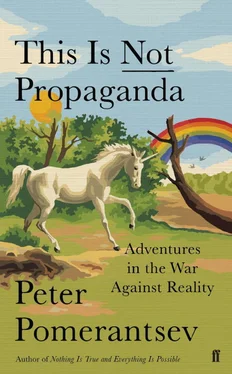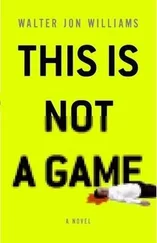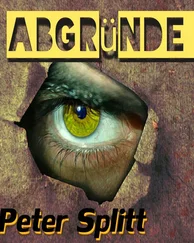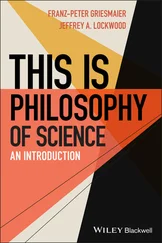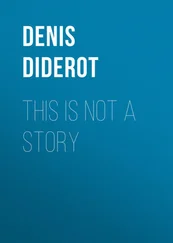Whenever Lina would become stressed her psoriasis would flare up, her skin coming out in a red rash. She feared what would happen when the KGB hauled her in for questioning. Would she start itching like mad? How would she keep her composure? What if they threatened to take away her parents’ jobs? How could she live with that? And who would feed Petya?
Esfir, her mother, calmed her down. She told her to forget about her parents – she only had a husband now and no one else. She needed to forget about her child: they would find wet nurses.
‘The KGB will interrogate you so long the milk in your breasts will go sour with mastitis. They will swell, the ducts will block, burn and cover with abscesses. You will become feverish. So whenever you feel the need, get up, go to the wall of the interrogation room and squeeze the milk out of your breasts onto the walls.
‘Make them feel ashamed and embarrassed.’
What shocked Lina is that her own straight-laced lawyer of a mother was describing how to resist the secret police so frankly, so directly. But though she never mentioned it, Esfir knew her fair share about arrests.
Back when she was still a student, in 1948, Esfir had been told by the dean of the law faculty to go work as a stenographer at the Kiev courthouse. She had a prodigious memory and there were rather a lot of trials at the time. Except they weren’t really trials. They just brought in one person after the other and sentenced them, as if it were an assembly line. It was the time of Stalin’s post-war purges of Ukrainian nationalists. After a while, Esfir got to know which judge would give how many years: this one was a five-year guy, this one fifteen. If the judge was known for being particularly stern, in the seconds before the judgement was read out Esfir would stop typing, and everyone else who worked in the court would stop whatever they were doing and press their hands hard over their ears. They would see the judge move his mouth to utter the sentence and then the noise would start. A sound like the wind, rising to a gale of grief, a wail penetrating every part of you.
‘Wooohooooooooooo…’
It was the relatives of the sentenced, and it was the same every time.
And so Lina had been raised in a world where everyone did their best not to hear what was going on. She had spent her childhood among people speaking in the passive voice and whispers: ‘X has been taken away’; ‘Y has been disappeared’. (When she grew up she would always feel revulsion at the passive voice and whispers.) Or there was the time the dam holding the reservoir near the ravine at Babij Yar broke and a part of Kiev was flooded so violently that buildings and trams were swept away in the torrent. Some say hundreds died, others thousands. No one knows exactly: all news of the event was stifled by men ‘from over there’, all displays of public mourning barred. Esfir would say only that the ‘the ground had wept’. This was a way of describing the unmentionable flood, which in turn invoked another unspoken catastrophe. Babij Yar was also where the Nazis shot thousands of Jews during the war, with help from local collaborators. Evasions were wrapped inside references to silences.
At university the first banned books began to come Lina’s way. Here, finally, the unspoken was expressed. And here, in the little circle around my father-to-be, Igor, were people who said what they thought without whispering, without the passive voice, sharing banned texts that were printed on cheap paper, glued to pieces of card and then packed in shoeboxes.
One evening, a year before Igor’s arrest, Lina had come home with a shoebox containing Solzhenitsyn’s Gulag Archipelago. It was tucked under her arm as she turned to take off her raincoat, glanced in the hall mirror and in the reflection caught the look of Great-Grandmother Tsilya in the room opposite, staring at Lina with her one good eye. There must have been something in my mother’s look that gave everything away immediately. ‘Esfir!’ Great-Grandmother screamed. ‘The child has brought banned literature home.’
Esfir ran into my mother’s room and leaned close over her. ‘You think you’re brave? Let me explain what they will do to you. They will take you down a long dark corridor. They will put you in a small cell. They will close the heavy door. And then they will turn the lock.’
And here Esfir made a noise with her throat like a great rusty thing turning over and over. It made my mother shrivel. Years afterwards she couldn’t work out how Esfir had made that sound, what mix of guttural groans and throat movements one needs to communicate metal breaking willpower.
Mother took the shoebox out of the house that night. It was the first time her mother had spoken to her so directly of the other side of the Soviet reality: the prisons and false arrests and interrogation everyone knew about but never uttered.
‘Maybe this is cruel of me, but I can think of no other word but betrayal when I think of those who were adults during my childhood and adolescence,’ Igor would write later, in an essay called ‘The Right to Read’.
I felt betrayed by my teachers. Not one spoke a single word of truth about the tragedy of my fatherland.
I feel as if I betrayed myself. Why did I believe the teachers and newspapers? Why did I take until my twenty-sixth year for my first public outcry in defence of my fellow citizens, mislaid behind bars, behind barbed wire, behind walls of psychiatric hospitals for their ability to think and express their words out loud?
I felt betrayed by my parents even though I loved them. At least at home they could have, for the sake of their sons, assumed some human dignity and honesty.
And it was books, only books that never betrayed me… I see all genuine literature as anti-Soviet. I feel any good book which acknowledges the human being, individuality, uniqueness is also anti-Soviet because the state dictatorship is directed against the human being as an individual.
Igor had seen his own father mangled by the contradictions of the Soviet experiment. Jacob Israelovich was a Bolshevik true believer who broke with his bourgeois, religious Odessan family, thinking he could build a just society free of anti-Semitism. He was made editor of the Dnipropetrovsk Youth Gazette in 1941 and seemed all set for journalistic glory, until Stalin began a purge on Jews after the war. Jacob Israelovich was forced to take refuge with relatives in distant, dead-end Chernivtsi, a Ukrainian provincial town right on the border with Romania which had been a part of Austro-Hungary until the First World War, then became part of Romania, before annexation by Stalin in 1944. Even here he worked on the local newspaper – and had his first heart attack after he wrote an article about Yugoslav leader Marshal Tito that was deemed too soft, receiving ‘a severe party reprimand for intentionally masking the nature of Tito’s reactionary regime in Yugoslavia’. Jacob Israelovich was so outraged he wrote to Pravda in Moscow – violating party rules – defending his ‘liberal’ editorial. It was the only time Igor ever saw his father ‘straighten his spine’. Pravda never replied.
Jacob Israelovich died after another heart attack, when Igor was still a student. By that time Igor had already made up his mind about the regime. His turning point was 1968, when Soviet tanks rolled into Prague in an event everyone knew was an invasion, but were meant to pretend was ‘brotherly help’.
In his first novella, Reading Faulkner, written when he was twenty-seven, Igor played on motifs from his own life when his fictional narrator, a young writer, discovers his father’s imperial, impersonal official writing and compares it with his own:
Читать дальше
